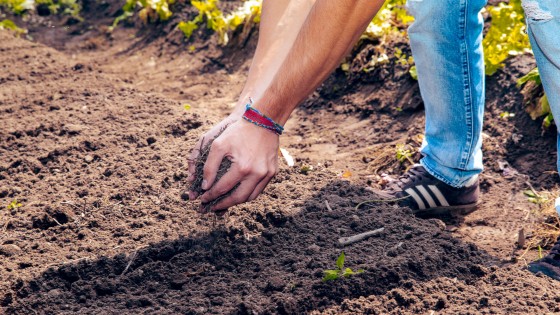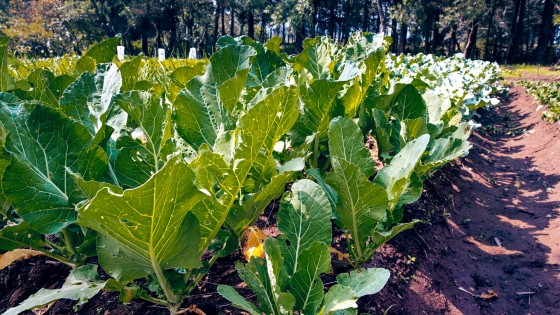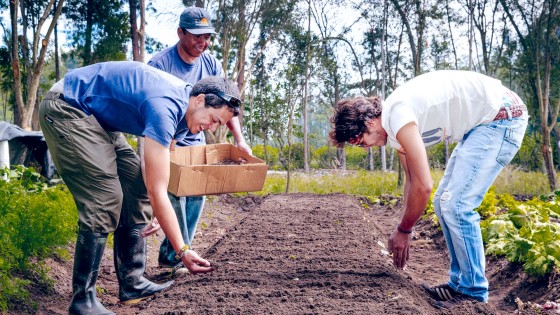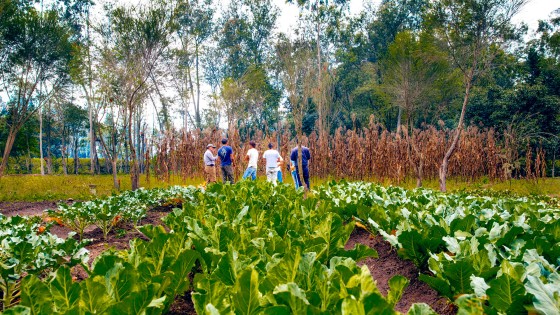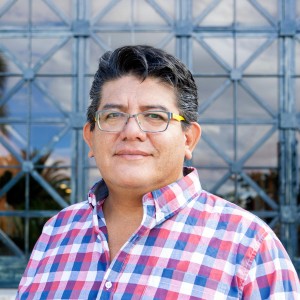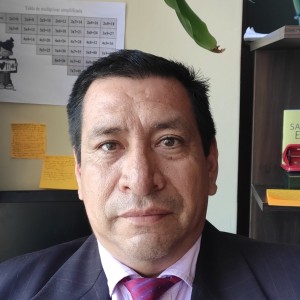Agronomy Engineering
"Innovation and productivity applied to Agriculture"
Agronomy Engineering
The Agronomy program emphasizes the study of technological processes for the improvement of production and productivity in the agricultural area, in the prioritization and diversification of crops and the efficient use of technology in: irrigation, pest and disease control, management of the harvest and post-harvest processes, and production costs. Additionally, the program seeks to implement a better link between the agricultural sector and the business sector, mainly supporting small and medium producers in technological, economic and financial aspects. For all these reasons, the graduate in Agronomy Engineering seeks to transform the business culture that exists in the agricultural sector, as well as the planning and efficient financial management of agricultural production.
Advantages
- Professors with Ph.D. and Master's degrees obtained internationally with extensive experience in research and education at the university level.
- Field infrastructure in different climate zones in the country, in order to strengthen the academic experience and professional practice, and specialized laboratories in molecular biology and biological control of pests and diseases.
- Training for local students and professionals emphasizing aspects related to technology, economics, and administration, through different events in these areas.
- Development of new solutions with a clean agriculture approach, to help producers minimize the use of chemical fertilizers and pesticides.
- Implementation of research projects and links with the public and private sectors, with important companies such as Terra Fértil, EcuaQuímica, FAO.
- The opportunity to complete a semester or a year of study at leading international universities that are leaders in the agricultural field, as Oregon State University and Lille Catholic University (France).
- The possibility of completing paid business internships abroad through the IAESTE program that allow participants to practice in 82 countries.
- Under the liberal arts educational philosophy, we train leaders in critical thinking and a liberal and entrepreneurial spirit.
Professional Field
The program will train professionals who will perform their profession in different general contexts:
- In the academic field: in the demands and innovations linked to agricultural production, and sustainable agriculture.
- In the field of innovation and transfer of agricultural technology: attending to the demands coming from the public and private sectors.
- In the field of efficient administration and management of agribusiness organizations in different regions of the country.
The Engineers of the Agronomy program can carry out their activities in a dependency relationship or independently, in the most diverse aspects related to the agricultural sector: in the floricultural sector - exporter, advice to rural producers, the management of the rural exploitation, the generation and application of agricultural technologies and research, are some of the tasks that make up their sphere of action.
The greatest demand for
- Agricultural Business Generators: Marketing processes, improvement of production systems, consulting, service provision, research, technology transfer, production of agricultural products with higher added value.
- Governmental and non-governmental institutions, both national and international: Ministry of Agriculture, Livestock, Aquaculture and Fisheries, Ministry of Production, MIPRO, ProEcuador, BNF, Inter-American Institute for Cooperation on Agriculture IICA, United Nations Organization for Agriculture and Food FAO - Ecuador, National Galapagos Institute, National Autonomous Institute of Agricultural Research, Inter-American Institute for Cooperation on Agriculture, Food and Agriculture Organization of the United Nations FAO - Ecuador.
- Private companies: Expoflores, AGSO, NGOs, agro-chemical companies, agricultural production companies, agro-export companies, SMEs, service and technical assistance companies.
- Public and Private Universities: Teaching
Testimonials
“I graduated as an Engineer in Agribusiness in February 2010. Once I graduated, I started working for a prestigious Ecuadorian flower company for years as the Head of Crops. While working there, I developed and put into practice the knowledge I managed to acquire at the university, such as personnel management, pest and disease management, administrative controls, cultural work, and fertilization. During this period I had the opportunity to learn and develop as a person, a professional, and a student. In 2013, to adjust to technological progress, the need and importance of continuing my academic preparation became apparent. This is why I began my Master's Degree in Industrial Safety, Occupational Health, and Environmental Management at USFQ, which I completed in May 2015. It is thanks to this that my professional activity and my perception of all of the professional and work-related fields changed."
- Hernán Villacís -
“I am a member of the class of 2007, from the University of San Francisco de Quito. I graduated as an Agribusiness Engineer. I am proud to be an Aggie class 10, I obtained my MAB (Master's in Agribusiness) at Texas A&M University. I started my professional development in one of the most important multinationals in the world, and was responsible for the development and maintenance of agricultural businesses in different countries in Latin America. After 5 years, I returned to Ecuador, and with the experience I had acquired, I began to offer business consulting services to companies in Ecuador. I was also able to join two other companies from different industries in the country. Currently, I am a professor at the best University in Ecuador, USFQ, where I get to do one of the best jobs, which is to share knowledge and enrichment with others. Furthermore, I consider myself an entrepreneur, having personally developed two professional projects and currently developing other future projects. In the end, I have a better understanding of what it means to be an agro-entrepreneur, where a business or a company does not depend only on an individual but on teamwork and leadership.”
- Emmanuel Sandoval Ponce -
“I received my degree from the Agribusiness Engineering school at the University of San Francisco de Quito, class of 2017. During the program, I had the opportunity to work for different companies in order to obtain the necessary resources to pay for my tuition, in addition to receiving financial support from the university which facilitated the continuation of my studies at that time. While studying and working in different areas I had the opportunity to develop skills such as people management, administrative resources, technical knowledge, and timely decision making. I am currently working at the USFQ Agrobiotechnology Laboratory on a research project funded by FAO, which evaluates the effect of climate change on potato production, by subjecting more than 60 potato genotypes to stress from heat, cold, and drought in order to select genotypes tolerant to abiotic effects and to correlate tolerance to these effects with various physiological parameters. In the near future, I plan to continue my master's studies in plant physiology.”
- Esteban Espinosa -
“I graduated in February 2019 as an Engineer in Agribusiness. Before finishing my studies, I started working at the University of San Francisco de Quito in the area of agronomy, where I continue to work at present. I am currently applying and developing the knowledge acquired during my academic training, such as: planning and implementation of greenhouse horticultural crops, good agricultural practices, integrated pest and disease management, fertilization, administrative management, and applied research using experimental designs. Thanks to the learning and experience gained, my vision of the agricultural sector has become more conscious and objective.”
- Hernán Ramos -
Academic Faculty
Members: 2188
Administrator: Antonio León (Professor)
Latin American Corn Network
Institutional Administration
Genetic and Genomic Network
Institutional Administration

